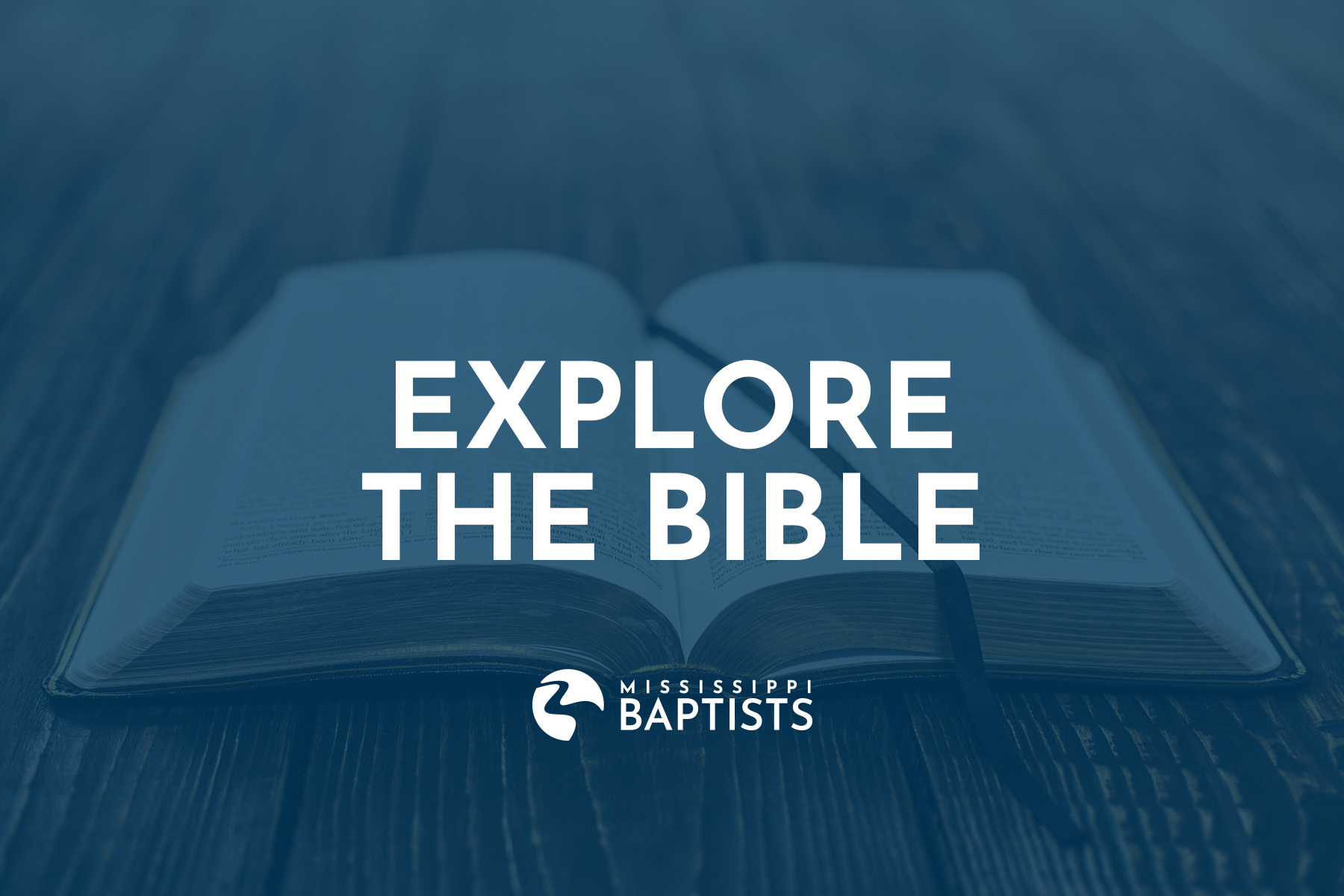God’s Plans • Numbers 22:22-35
By Ralph Henson

Two things stand out in Numbers 22:22-35: the talking donkey and Balaam’s response. Let’s look at both. And then we will consider an interesting parallel.
1. The talking donkey. Generally speaking, animals don’t talk. I’ve seen videos of dogs or cats making sounds like, “I love you,” or “momma,” but like a parrot, the animals don’t know what they are saying (Psalm 32:9). So how could the donkey speak? Was it a demon speaking, like in the Garden of Eden? Or was it in the mind of Balaam, but not physically? Could the speaking of the donkey be a spiritual sound in Balaam’s spirit, but not in the flesh? Perhaps the braying of the animal was interpreted to sound like a human in the moment? Could Balaam, who practiced sorcery, have used incantations to lure the animal to speak? (These are all ideas from various commentaries trying to solve this difficult event.)
The key is in Numbers 22:28: “And the Lord opened the mouth… ” The Lord spoke through the donkey. While animals do not speak in the Bible (other than the serpent), God does control animals in the Bible. God sent animals two-by-two to the ark. God sent ravens to feed Elijah. Jesus sent the pigs into the sea of Galilee. God designed and directs all of creation, so He can certainly speak through an animal. Since God resurrected Jesus, anything else is easy.
2. Balaam’s response. Balaam decided to go speak with Balak the king of Moab, even though God originally told him not to go. Apparently Balaam accepted the honorarium (twice) and persisted in asking God, who then said, “If the men come to call thee, rise and go with them; but yet the word which I shall say unto thee, that shalt thou do” (22:20). Negotiating with God is usually not good.
On the way, God placed His angel to stop Balaam, but the soothsayer could not see him (Balaam is never referred to in the Bible as a prophet or a seer, words used by God to describe prophets like Isaiah and Elijah, but is called a soothsayer, a term used to describe the evil magicians). His donkey had enough sense to see the angel, but Balaam’s attention was on the animal and not the angel.
When Balaam saw the angel and repented, he still travelled to Moab and negotiated with Balak. Eventually he gave multiple messages of God’s blessings upon Israel. Like Cyrus of Persia, people outside of Israel could discern and speak God’s truths.
3. A Parallel story. In Genesis 22, the near sacrifice of Isaac, we see a similar story. In both accounts, two men got up and left early in the morning. Two servants travelled with both Abraham and Balaam, both with a donkey (although one male, and one female donkey). Both men were from Mesopotamia. The angel of the Lord appeared to both. God intervened and everything changed in both events. Both listened to God and blessings followed.
There are startling differences in the story, though.
1. Abraham obeyed without question. Balaam disobeyed God’s first command, and then negotiated with God.
2. Abraham was driven by love for God over his son. Balaam was driven by greed over the truth (Jude 1:11).
3. Abraham obeyed and stood strong with God. According to the words of God (Joshua 24:10) to Joshua who was there when the conflict with Moab took place, Balaam still uttered a curse (“But I would not harken to Balaam; therefore he blessed you still. So I delivered you out of his hand“).
4. Abraham left a Godly legacy of faith and obedience (Hebrews 11:8-10). Balaam remains as a testimony of what not to do, since he played with God’s Word for his own gain (Numbers 31:8, Deuteronomy 23:4-5, Nehemiah 13:2, 2 Peter 2:15, Revelation 2:14). All of these passages portray Balaam as greedy, sinful, devious, and opposite of God’s good will.
When Abraham saw the angel of the Lord, he worshipped. When Balaam failed to see the angel of the Lord, he fought — a picture of two responses to God’s will. As believers, we have the ability to hear from God and see His leadership (John 10:4, 14). When we honor God and obey His voice, we will leave a Godly legacy like Abraham, and unlike Balaam.
Henson is pastor of Mt. View Church, Meridian.




